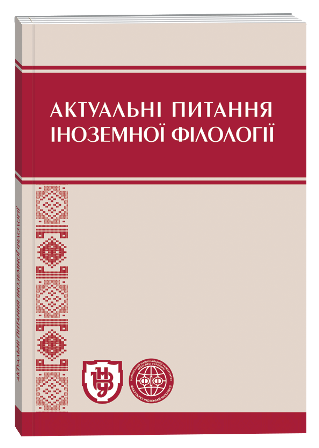SPEECH ACTIVITY ANALYSIS OF NON-PHILOLOGICAL CADETS-INTERPRETERS
DOI:
https://doi.org/10.32782/2410-0927-2025-22-3Keywords:
abbreviation, listening, military terminology, speaking, speech activity, reading, writingAbstract
The article is dedicated to the analysis of the speech activity of cadets who are sent abroad as interpreters but do not have a philological background. The authors focuse on the key components of language training, such as listening, reading, writing, speaking and the use of military terminology, which are extremely important for the military. The article offers an overview of the teaching methods, the challenges cadets face and the ways to overcome them. The relevance of the article lies in the fact that modern military personnel must not only possess general language competence but also have a deep knowledge of specialized military terminology and the ability to quickly adapt to various situations. Unlike philological specialists, cadets without a philological background have limited opportunities for an in-depth study of language theories, which affects their ability to communicate effectively in real-world conditions. The authors successfully highlight this issue, demonstrating that adapting teaching methods is essential to achieving a high level of language proficiency. The article provides a detailed analysis of some key types of speech activity: listening, speaking, writing and reading. Particular attention is paid to listening, that requires cadets to quickly perceive information in conditions of high noise levels and other disruptions. According to the authors’ analisis, speaking is the most challenging activity for cadets, as it requires not only knowledge of terminology but also the ability to react swiftly to changing circumstances. Reading and writing, although less dynamic, also pose difficulties due to the complexity of military texts. The article suggests several effective teaching methods, including use of authentic materials, the simulation of real-life situations, and the application of modern technologies to facilitate the perception of complex information. The authors also emphasize the importance of using interactive teaching methods which help cadets better grasp new terminology and develop quick-response skills. The authors conclude that for effective translation training in military settings, it is necessary to adapt teaching approaches, taking into account the specific training needs of cadets without a philological background. The article provides valuable recommendations for instructors working with military personnel, particularly regarding the increased use of military terminology in everyday teaching practice and the importance of regular drills in conditions as close to real life as possible.
References
Глуховська М., Бекіров А. Language Barrier Analysis оf Cadets During Assignments Abroad / “Новітні технології – для захисту повітряного простору”: тези доповідей XХ міжнародної наукової конференції Харківського національного університету Повітряних Сил імені Івана Кожедуба, м. Харків, 4-5 травня 2024 р. Харків: ХНУПС , 2024. С. 743.
Головченко Т. В. Аналіз ефективності методик навчання перекладачів. Журнал перекладу та лінгвістики, 2023. Т. 14, № 2. С. 45–60.
Вебер А. Корпусна лінгвістика в перекладацькій практиці. Журнал корпусної лінгвістики. 2023. Т. 8, № 2. С. 87–103.
Іваненко О. М. Міжкультурна компетенція у навчанні перекладачів: Теорія та практика. Харків: ХНУРЕ, 2024. 256 с.
Костюченко А. І. Роль машинного перекладу в сучасній перекладацькій практиці. Вісник мовознавства. 2023. Т. 19, № 3. С. 112–125.
Олексійчук Н. В. Перекладацька практика курсантів непрофільних філологічних спеціальностей. Вісник педагогіки. 2022. Т. 17, № 1. С. 30– 47.
Рябов М. С. Новітні методики у підготовці перекладачів: Теоретичний та практичний аспекти. Київ: Академія педагогічних наук України, 2023. 310 с.
Смирнова І. С. Інтерактивні технології у навчанні перекладачів: Перспективи та виклики. Науковий журнал «Лінгвістичні студії». 2024. Т. 25, № 4. С. 68–85.
Щербань О. В. Технології комп’ютерного перекладу: Роль і значення в сучасній освіті перекладачів. Харків: Видавництво «Освіта», 2022. 172 с.








